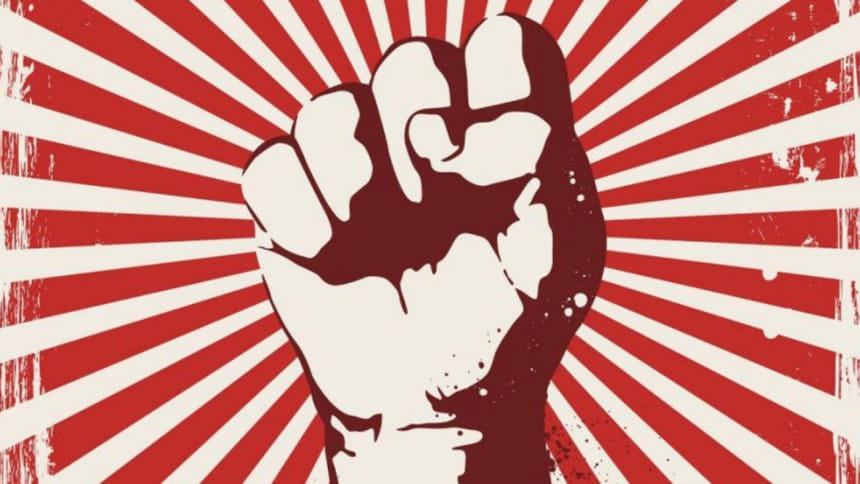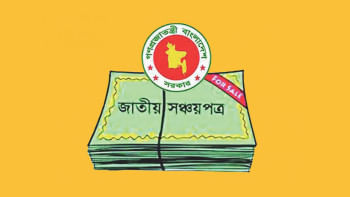On Democratic Socialism

After the collapse of the Soviet Union in 1991, the 20th century's ideological contest seemed over. Capitalism had won and socialism became a byword for economic failure and political oppression. Today, 30 years on, socialism is back in fashion" observed The Economist in a recent issue. It appealed to its readers: "Liberals should oppose it". Donald Trump, President of one of the most "anti-socialist" country in the world, warned his citizens (in his 2019 State of the Union address) about "new calls to adopt socialism in our country." "Tonight," he further added, "we renew our resolve that America will never be a socialist country." Such vanguards of the bourgeois interests, it seems, have become unsettled to the core with the radicalisation of politics in the developed capitalist world. Like the mythical bird phoenix, the "shocking" revival of socialist ideology and politics has spawned plethora of scholarly as well as popular writings on the possible political (liberal democratic or beyond?) and economic (what kind of ownership?) forms that socialism might or should assume in the 21st century. Sadly, such intellectual interventions and debates can hardly be observed in Bangladesh. So when I saw the recently published Bangla book entitled "Amar Shomajtantra" or My Socialism (Prothoma, 2019), written by an eminent development economist Azizur Rahman Khan, I was simultaneously intrigued and delighted.
Although the length of the book is quite short it still contains dense analysis of complex issues such as Marx's theories of economics and socialism, nature of actually existing socialism (that existed in former Soviet Union, China, Eastern Europe), the fall of this variant of socialism, the crisis of contemporary advanced capitalism, and a final chapter on the author's vision and outline of democratic socialism in developing countries. Given the space constraint, my discussion of the book will concentrate on this last chapter, which I believe lies at the heart of author's intellectual project.
The author's "Amar Shomajtontra" is a vision that ensures equality, inclusive growth and liberal pluralist democracy. Concrete features of his socialism are borrowed from the models of prevailing Scandinavian social democracies (Norway and Sweden particularly) and East Asian fast-growing economies (minus authoritarianism).
From social democracies the author borrowed the following: Regulation of the economy/capitalist firms, social contract between trade unions and firms/industries—resulting in socially regulated market as opposed to whole-scale nationalisation, redistribution of wealth/income, and hybrid ownership (private, social, and state). From the East Asian developmental capitalist model he adopted the following: Strategy of quick growth and labour intensive employment strategy at the same time limiting inequality. His socialist vision finally includes a robust and universal social protection policy much more than what is currently being practiced in the developing countries.
Now the problem is that what the author is calling socialism is indistinguishable from social democracy. The latter, as I understand, is a reformist project that prioritises income redistribution and regulation of the economy and establishes robust forms of welfare state all of which create the conditions for egalitarian and democratic capitalism.
What is then democratic socialism beyond social democracy? To me, the defining economic characteristic of socialism is that it eventually abolishes the practice of selling labour as a commodity or at least marginalized such practice in the interim period. In this sense actually existing social democracies (like Norway—the preferred model of the author) are hardly socialists. For instance, in Norway, the state-owned enterprises employ about 280,000 workers, which is only 10 percent of the total employed workforce. In general, the public sector in Norway employs about 30 percent of the labour force. Can we call a country socialist (or approaching towards socialism) where vast majority of the total employed labour force is forced to sell its labour power to the capitalist? In a discussion event on the book the author observed that existing social democracies will eventually move towards socialism. Norway's (which is the most advanced and robust form of social democracy) reality hardly indicates that.
Democratic socialism, in contrast, involves: social ownership over the vast majority of the economic assets of society, the eradication or near eradication of the economic process whereby workers are compelled to work for private capitalists owning those assets, and, more importantly, establishment of decentralised democratic institutions within and beyond the state—in workplaces and communities.
For me, democratic socialism would mean a socio-economic system where the means of production are socially owned (instead of state owned) and economic activity is controlled through the exercise of social power, (not economic power—of capitalist in capitalism or state power—of party leaders and bureaucrat as seen in the former and current actually existing socialist countries) in a decentralised democratic manner. The Soviets that were formed after the Russian revolution (before they were co-opted/controlled by the party/bureaucratic elites) are institutional manifestation of social power.
The author has emphasised continuation of market discipline/rule (bajarer shashon) in the socialist system. I agree with him. But according to him this market disciplining process will be governed by the state (Rashtro kotrik niyontrito). At the same time, he pointed out that such governing of the market process would be constrained by constitutional and legal measures with transparent criteria so that state actors cannot abuse it. That is state being constrained by a liberal pluralist constitutional democracy. The need for some social power (in my sense) subordinating the state power itself does not arise in his model.
Democratic socialism, for sure, is based on the principle of rule by the people but this does not only mean, rule by aggregation of preferences of the separate individuals/citizens acting in an isolated manner i.e., secret ballots in election. Rather, it means rule by the people collectively organised into associations (parties, communities, unions, workers councils, deliberative forums etc—that is associational democracy). This is exactly the rule through the exercise of social power as discussed above. Periodic national election is not excluded in my concept of socialism. Democratic form in socialism, therefore, would be hybrid in nature and associational democracy will get priority over periodic national elections. Socialism thereby leads to deepening of democracy.
The concept of economic activity being controlled through the exercise of social power also implies economic democratisation—a core idea of Marx, which lies at the heart of 21st century conceptualisation of democratic socialism. In this sense socialism can be defined as pervasive economic democracy. I am not sure the author's conceptualisation of socialism includes that in any substantive sense.
Note that I am using the word social power. In this sense Socialism is not only limited to the process of building democratic egalitarian organisation in the economic domain only but in the society as well. Therefore, democratic socialism needs to be analysed and understood not only in the economic sphere but should also incorporate social and political meta parameters operating in the larger civil society. The book puts much less emphasis in these two parameters.
More critically, democracy, in socialism, plays a crucial role by connecting social power and state power (whereby state power should be fully subordinated and accountable to decentralised social power). Democracy is thus endogenous to the concept of socialism. In contrast, the author's notion of liberal democracy tends to remain somewhat exogenous to his idea of socialism.
The author argued at the outset that his outline of the socialist alternative is based on Proyogjoggyota (feasibility, implementable) but the book focuses mainly on the economic feasibility of socialism. I believe the book could have made greater contribution if the author had touched upon the issue of political feasibility of implementing socialist projects in the developing world within a liberal democratic multi-party framework. In this regard he rather made an anodyne comment which is not very helpful: incentive and agency of socialist transformation will emerge "due to historical convergence of people's justified anger and leader's stable/calm farsightedness." I could retrieve only one remark by the author which is somewhat associated with political realism of building socialism within a democratic framework: "Perhaps we could think of dual allegiance to both revolution and democracy; even if revolutionary changes can however be made by some tactics but to garner comprehensive and permanent people's support for these, we will need to limit, to a certain extent, the aims of such changes. This will be good for both revolution and democracy." The book, unfortunately, does not further elaborate on this idea.
Dr Mirza Hassan is a social scientist. He can be reached at [email protected]










Comments